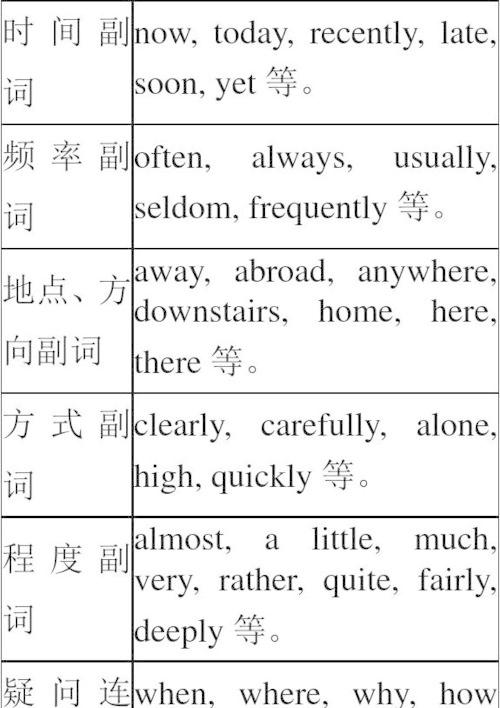副词可以修饰动词、形容词、其他副词或句子,常用于句首以强调信息或改变语气。常用的句首副词包括"however"(然而)用于表示转折,"nevertheless"(然而)用于表示对比,"therefore"(因此)用于表示结果或推论,"moreover"(而且)用于表示补充信息,"nonetheless"(尽管如此)用于强调对比,以及"finally"(最后)用于表示时间或顺序上的结尾。

1. However
这个副词意思是“不过,然而”,常用于句首表示转折,引出一个与前面句子相反的观点。例如:
However hard you try, you won't be able to finish it in one day. (无论你多努力,你都无法在一天内完成它。)
2. Nevertheless
这个副词意思是“然而,不过”,与however的意思相近,但语气稍微缓和一些,常用于表示前后句子之间的对比。例如:
She failed the exam; nevertheless, she was determined to try again. (她考试不及格,但她决心再试一次。)
3. Therefore
这个副词意思是“因此,所以”,常用于句首表示结果或推论。例如:
He didn't study for the test, therefore he failed it. (他没有为考试学习,因此他失败了。)
4. Moreover
这个副词意思是“而且,此外”,常用于句首表示补充信息。例如:
He is not only smart, but moreover, he is hardworking. (他不仅聪明,而且他很勤奋。)
5. Nonetheless
这个副词意思是“仍然,尽管如此”,与nevertheless的意思相近,但语气更加强调前后句子之间的对比。例如:
The car is old and has many problems; nonetheless, he still drives it every day. (这辆车旧了,有很多问题,尽管如此,他仍然每天开它。)
6. Finally
这个副词意思是“最后”,常用于句首表示时间或顺序上的结尾。例如:
Finally, after many years of hard work, he achieved his goal. (最后,在多年的努力之后,他实现了自己的目标。)

